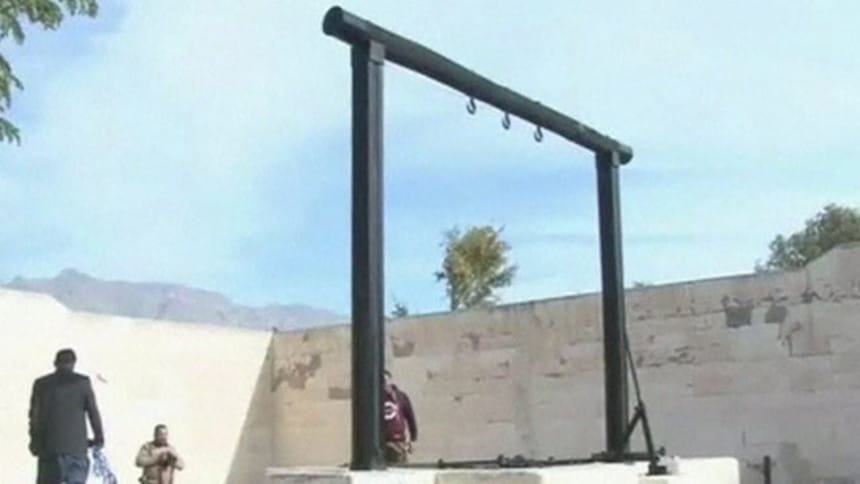Pakistan imposes one-month moratorium on executions

Pakistan has imposed a one-month moratorium on executions during Ramadan, officials said Sunday, giving a temporary reprieve to a death row prisoner whose lawyers say he was a juvenile at the time of the crime.
Shafqat Hussain was sentenced to hang for killing a seven-year-old boy in 2004, when his lawyers and family say he was under 18 and therefore not eligible for execution.
But last Wednesday the Supreme Court rejected an application by Hussain's lawyers to set up a judicial commission to determine his age.
On the same day, despite international condemnation, authorities hanged for murder another man who was said to have been a minor at the time of the crime and who was allegedly tortured into confessing.
"It is a tradition that nobody is executed in the (Islamic) fasting month of Ramadan and the authorities have ordered that this tradition continues this year too," said Nusrat Mangan, Inspector General of Prisons in the southern province of Sindh where Hussain has been held.
"We have to seek death warrants two weeks prior to hang any convict, so his hanging will take place after at least one month," Mangan told AFP.
An official in the federal interior ministry confirmed that a notification had been issued to halt executions during Ramadan, which starts this week in Pakistan.
But Nazeer Farooq, Inspector General of Prisons in the country's most populous province of Punjab, said his department had not received such a notification yet.
"We have to execute around two dozen convicts before Ramadan in any case," he told AFP.
The independent Human Rights Commission of Pakistan says the country has hanged over 150 convicts since restarting executions in December following a Taliban school massacre -- more than Saudi Arabia over the same period.
A moratorium on the death penalty had been in force since 2008, and its end angered rights activists and alarmed some foreign countries.
Amnesty International estimates that Pakistan has more than 8,000 prisoners on death row, many of whom have exhausted all avenues of appeal.
Critics say the country's criminal justice system is marred by police torture and poor legal representation, meaning many of those now facing the gallows have not had a fair trial.

 For all latest news, follow The Daily Star's Google News channel.
For all latest news, follow The Daily Star's Google News channel. 



Comments